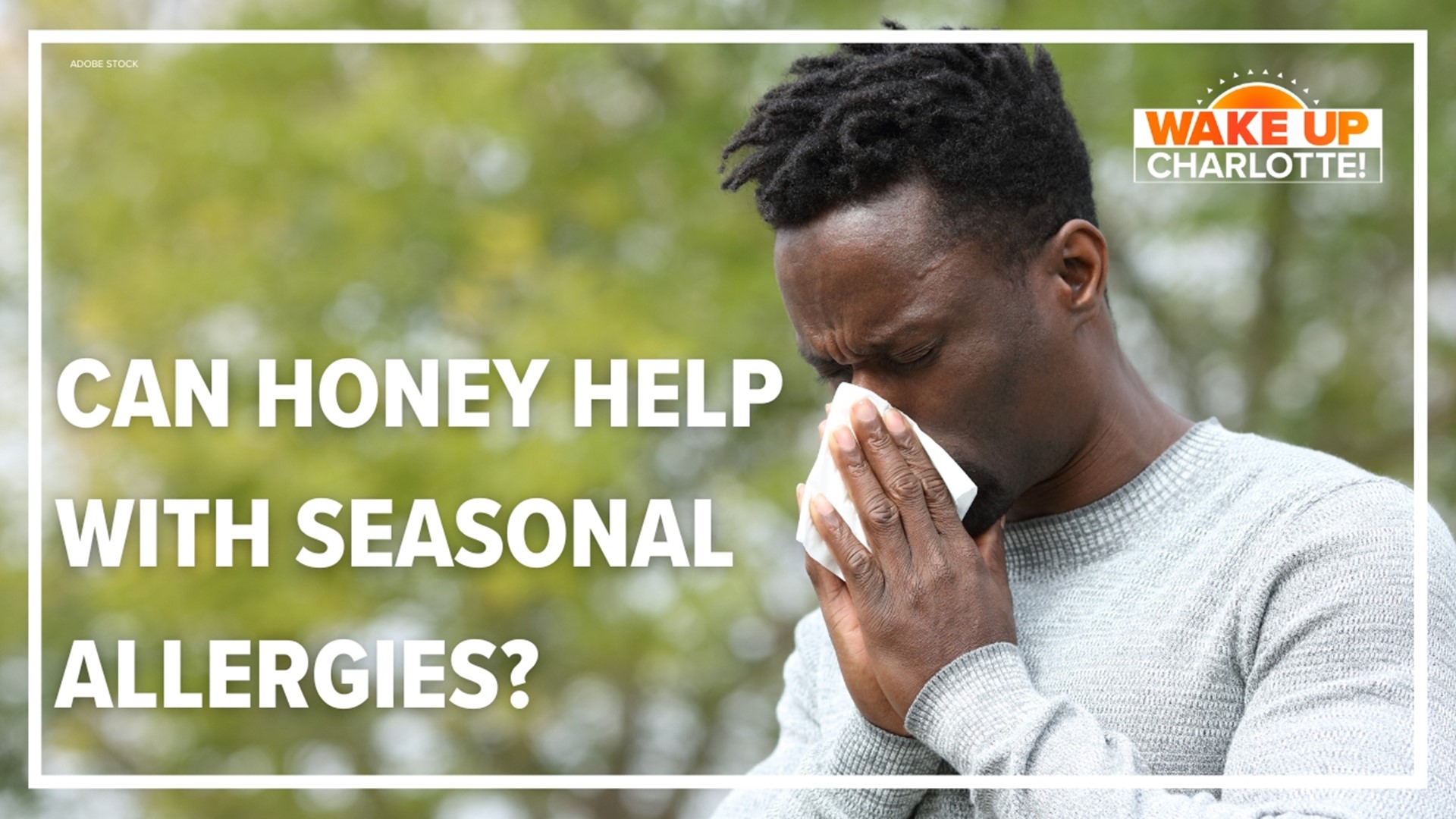CHARLOTTE, N.C. — With the warm weather forcing earlier blooms, many people are suffering from allergies and people are willing to do just about anything to get relief.
Some people are eating local honey and claiming that it can get rid of their allergies, but does that actually help?
THE QUESTION:
Does local honey cure seasonal allergies?
THE SOURCES:
THE ANSWER:
No, eating local honey will not cure your allergies
WHAT WE FOUND
First, let's take a look at how an allergen affects the body.
"Our bodies respond to that by producing antibodies [which is] a great source of protection for us," Williams told WCNC Charlotte. "But sometimes they cause a chemical reaction that then causes those other reactions that cause allergies."
Some believe that because bees collect pollen to make honey, that pollen in the honey would help desensitize your body to those allergens.
"The problem with honey is the pollen that the bees use is mainly coming from flowers and the pollen that we are allergic to is not the flower pollen," Gupta said.
According to the Asthma and Allergy Foundation of America, the pollens that affect people the most are trees, grasses, and weeds, which bees usually don’t collect.
Plus, once the honey is processed, you would not ingest enough intact pollen to desensitize your immune system.
A study conducted by the University of Connecticut gave a small group of people local honey for several days to see if their symptoms would resolve. and they found the honey did not eliminate allergies.
"I think it’s a great way to help us treat some of the symptoms but I’m not really sure it's going to control your allergies as a whole," Williams said.
Contact Meghan Bragg at mbragg@wcnc.com and follow her on Facebook, Twitter and Instagram.
VERIFY is dedicated to helping the public distinguish between true and false information. The VERIFY team, with help from questions submitted by the audience, tracks the spread of stories or claims that need clarification or correction. Have something you want VERIFIED? Text us at 704-329-3600 or visit VERIFY.

